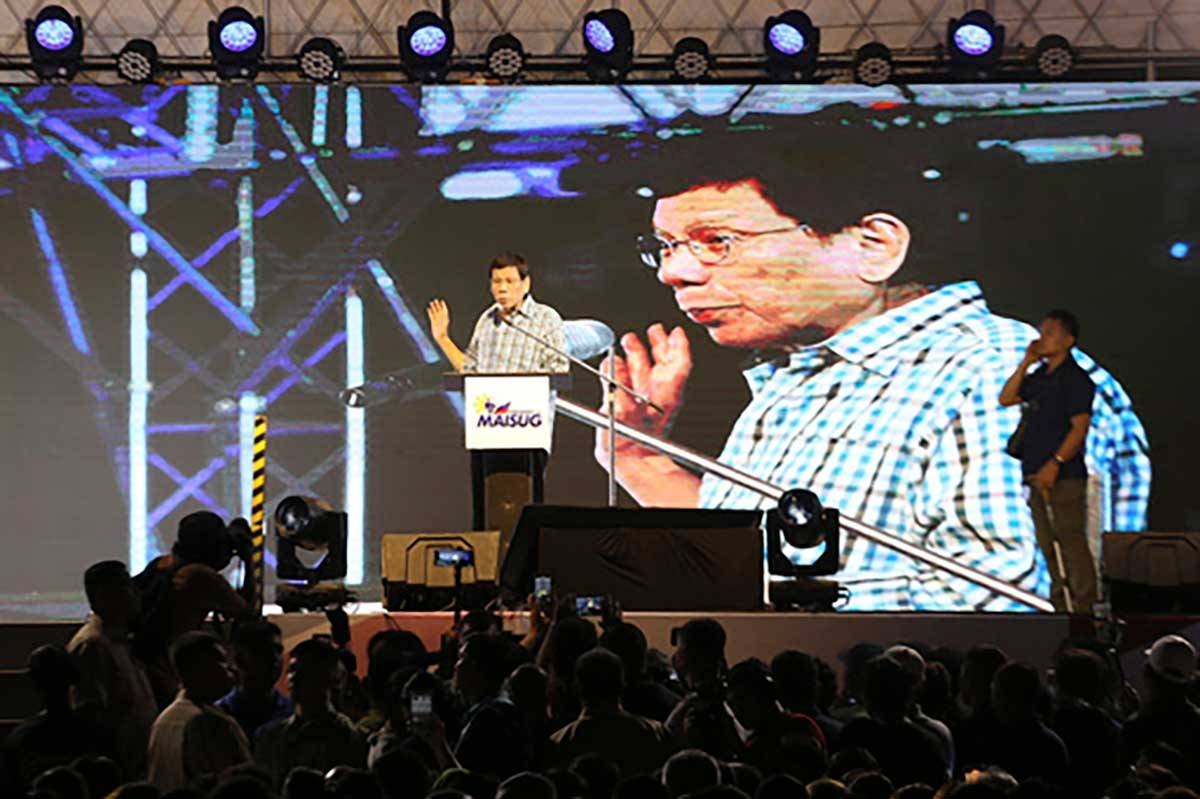President Ferdinand Marcos Jr. has responded to the accusations made by his predecessor, Rodrigo Duterte, regarding his alleged drug addiction. Marcos attributed Duterte’s claims to the effects of fentanyl, a drug that Duterte himself had taken. Speaking to reporters before leaving for a state visit to Vietnam, Marcos dismissed Duterte’s accusations and shed light on the potential side effects of fentanyl.
Fentanyl is a synthetic opioid that is significantly stronger than heroin and morphine, with the Centers for Disease Control (CDC) describing it as up to 50 times more potent than heroin and 100 times stronger than morphine. Duterte had previously acknowledged using fentanyl to manage pain from spinal injuries sustained in a motorbike accident. However, he has not confirmed ongoing use of the drug.
Marcos emphasized that fentanyl is highly addictive and can have serious side effects. He pointed out that Duterte had disclosed his use of fentanyl around five or six years ago, suggesting that the drug’s long-term effects may have contributed to Duterte’s behavior. Marcos expressed concern for Duterte’s well-being and urged his physicians to provide better care for the former leader’s medical needs.
In a speech filled with strong language, Duterte accused Marcos of being a drug addict and frequently being under the influence of illegal substances during his presidency. He even claimed to have seen Marcos’ name on the watchlist of the Philippine Drug Enforcement Agency (PDEA). However, the PDEA has refuted Duterte’s claim, stating that Marcos was never listed in their National Drug Information System (NDIS).
Duterte also alleged that Marcos’ legislative allies were planning to amend the Constitution to remove term limits, drawing a parallel to the ousting of his father, the late President Ferdinand E. Marcos. Duterte warned that such actions could lead to Marcos being overthrown. While members of the House of Representatives have discussed constitutional amendments, Duterte did not provide any evidence to support his claim that lawmakers supporting Marcos, including House Speaker Ferdinand Martin Romualdez, were bribing local officials for this purpose.
Romualdez, who is Marcos’ cousin, denied Duterte’s allegations and clarified that his intention for constitutional amendments was to remove restrictions on foreign investment, not to extend their grip on power. Marcos himself expressed openness to altering economic provisions of the Constitution but opposed changing the provision that restricts foreign ownership of land and critical industries like the media.
It is worth noting that the Senate opposes opening the Constitution for changes, as it believes that its checks-and-balances role could be undermined if the House proceeds with joint session amendments instead of separate voting in the Senate and the House. The 1987 Constitution, which contains safeguards against dictatorships, was implemented after Marcos’ father was ousted following a people power uprising that accused him of plunder and human rights abuses during his rule.
In conclusion, President Marcos Jr. has dismissed Duterte’s accusations of drug addiction, attributing them to the effects of fentanyl. He emphasized the addictive nature and serious side effects of the drug. Marcos expressed concern for Duterte’s well-being and called for better medical care. Duterte’s claims regarding Marcos’ involvement in illegal substances and plans to amend the Constitution lack evidence. The debate over constitutional amendments continues, with the Senate opposing joint session amendments.
Source: The Manila Times







